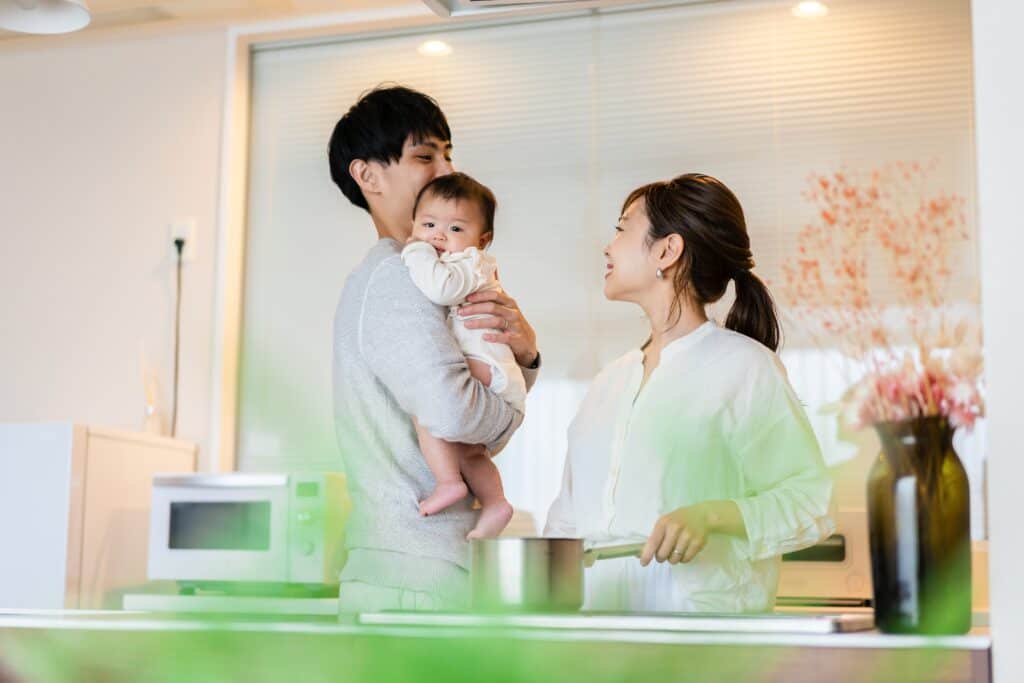We often think of marriage as a traditional institution, but it’s not a static feature in our society. Legally and socially, it’s still the most widely accepted way for couples to make their status official. However, law and society have seen massive shifts even in the last few decades.
Looking at this through a legal and social lens is essential.
When we talk about flexible roles in marriages, we aren’t just talking about the dynamic between two people. That dynamic is informed by the dominant teachings of gender, namely heterosexuality norms in today’s society. Laws either enforce or prohibit how those norms can be practiced, and changes in either realm affect couples directly.
This is where flexibility comes in. As things change, flexibility can help married couples preserve their bond in ways that are fulfilling and in line with their shared values. Flexible roles aren’t necessarily what everyone wants, but they can offer a wider perspective when navigating the world together.
But what does this look like, exactly?
Why should couples have flexible roles in their marriage?
Equality within marriage has been a focus for multiple rights movements, but the tradition itself hasn’t always been as flexible as it needs to be. Take the ability to work, for example.
US Congress only passed the Fair Labor Standards Act in 1938, guaranteeing a minimum wage for all workers regardless of gender. Even then, women couldn’t get credit cards without a co-signer until 1974, when the Equal Credit Opportunity Act was passed.
So while workers’ rights for women were gaining traction socially as early as the 19th century, legal protections only came later. This tension created a kind of flux within individual communities, households, and marriages.
Even in many heterosexual marriages today, women are still expected to provide a caretaking role. This isn’t to say husbands aren’t expected to contribute to the household. We know how important it is for both parents to play an active role in a child’s development, and sharing the financial burden gives couples more flexibility when budgeting and saving.

This is the beauty of having flexible roles. Before spouses marry, they come to the relationship as individuals with their own history, circumstances, and ambitions. As time goes on, people are getting married later in life. A study review looking at the changes in the flexibility of gender roles in marriage found that:
- In 1960, 60% of 18-19-year-old Americans were married
- In 2016, that number dropped to 20% for the same demographic
In a more equal society, everyone has more access to resources, career opportunities, and personal development. When the study interviewed 100 women on why delaying marriage was more desirable, building their economic and professional bases was the biggest factor.
We can see what drives this trend by looking at how marriage traditions impact both bases.
The multiple roles society has for women
While it’s easy to see the benefits of both spouses contributing to the household, the expectations aren’t equal for both.
Pregnancy, for example, limits a woman’s ability to earn an income without paid maternity leave. On the other hand, the gender pay gap in most industries means there’s still a bias towards men being seen as ‘breadwinners’.
According to the 2022 US Census, the national median earnings for full-time workers in the last 12 months were:
- $53,544 for men
- $43,394 for women
The census also found that, at a national level, the top occupations for men were sales, management, and supervisor roles. For women, the top occupations were elementary and middle school teachers, registered nurses, and administrative assistant roles. That means there’s a disparity in not just income, but time commitments too.
Education and admin roles tend to expect more labor outside of work hours. While this is true for many management positions too, they still have greater scope for delegating, stronger work-life boundaries, and a higher income to boot.
Even in the workplace, women are still expected to take on support or nurturing roles in the overall structure. This adds to the same pressures they face at home because of social expectations. So how can a more flexible approach to marriage roles create a healthier environment within the relationship and home?
How couples can change it in the household
Dealing with the realities of social and economic inequality can be uncomfortable. Talking about difficult experiences that negatively affect your life can bring frustration, trauma, and anger to the fore. As a husband, acknowledging the ways outside factors impact your spouse is its own journey, but it’s a worthwhile one.

Recognizing the biases that creep into a relationship is the first step to protecting your bond from them. Recognizing the subtle and obvious ways we sometimes perpetuate these biases is just as difficult, but the work can strengthen a marriage over a lifetime.
Openly discussing these topics before marriage can offer both partners a way to connect while widening their perspectives. It gives couples a chance to define their needs and expectations. Flexible roles in marriages make it easier to balance expectations while meeting each other’s needs.
Some of the most valuable discussions for achieving this include:
- How each partner defines happiness within the relationship
- Where values and ambitions align and diverge
- Shared attitudes about money and household responsibility
- Personal goals and how each partner can support the other
- The best way to distribute domestic and caregiving work
The well-being of children in parents with flexible roles
Couples therapy gives couples a way to have these discussions in a relaxed environment with professional support. Contrary to popular belief, relationship therapy isn’t just for dealing with issues. It can be proactive too, especially when there’s a big change on the horizon – like marriage or parenthood.
One of the many reasons new parents benefit from couples therapy is the focus on changing household dynamics. Counseling helps each person evaluate their relationship with parenthood and what that role means within their relationship. It offers insights that couples use to stay flexible, manage frustration, and work together.
Flexible roles in marriage or parenthood require mindful awareness of gender differences in family life. While it can be difficult work at the start, it’s one of the best ways to guarantee marriage satisfaction long-te, especially for parents and working couples.
Happily married couples practice flexible roles
It’s clear that the traditional roles of husband and wife in a heterosexual relationship are no longer as relevant as they used to be. What is essential is that both partners in a marriage feel like they have a voice and can contribute to the relationship and family in their own way. While some might still find it uncomfortable to consider, flexible roles in marriages can help you become better partners and individuals.
If you and your spouse are struggling with this, couples therapy can be the best step. Staying happy in your marriage needs work and commitment. If you feel like your marriage is lacking in any of that areas, our relationship experts can help.

